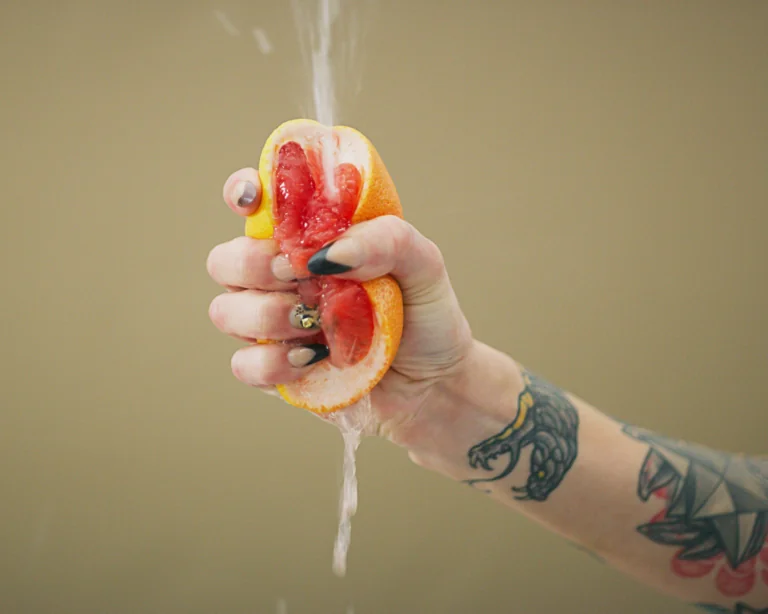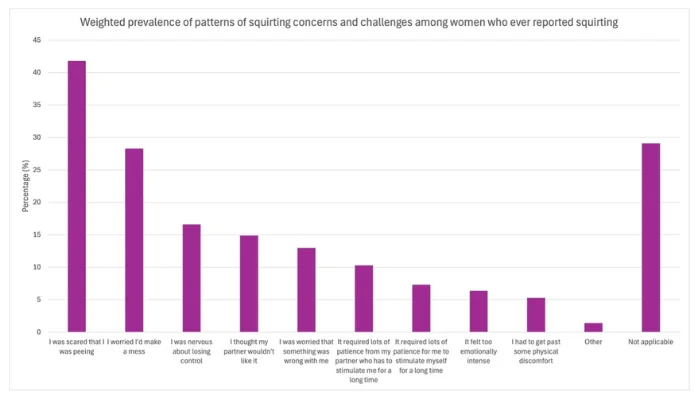Beyond the Taboo: Vaginal Squirting and Owning Your Pleasure
Vaginal squirting is a normal response to sexual stimulation, but myths surrounding squirting may perpetuate shame and reduce pleasure.

Read Time: 2 minutes
Published:
The sex-positive movement encourages everyone to embrace their sexuality and let go of stigma and shame. By fostering confidence and open communication about sexual experiences, sex positivity can lead to improved sexual health, greater well-being, and more informed decisions about personal health and relationships.
Vaginal squirting is a normal response to sexual stimulation. However, many people have mixed feelings about it. It is often confused with female ejaculation – a small amount of thick, white fluid released from the female prostate. However, the two are not the same. Squirting is a phenomenon where a substantial amount of liquid – a combination of Skene’s gland fluids and small traces of urine – is released from the urethra right before or during orgasm.
There are myths surrounding squirting. Some think that it isn’t real or do not know what squirting is, which leads to anxiety over urinating during sex. Others think that all women can squirt, leading some women to feel pressure (self-imposed or from their partner) to squirt during intercourse. Such myths, pressure, and insufficient knowledge may lead women to feel sexually deficient if they do not squirt, which perpetuates shame and reduces pleasure in sex.
Devon Hensel and colleagues analyzed women’s experiences with vaginal squirting. They used data from the OMGYES Pleasure Report, a nationally representative online survey conducted in July 2018. Their analysis included 3,017 women aged 18-93.

Forty-one percent of women reported experiencing squirting at some point in their lives. Among these women, common concerns cited included “I was scared that I was peeing” (41.8%) and “I worried I’d make a mess” (28%). Many concerns centered around feeling self-conscious about this sexual experience; 29% of women reported no concerns at all.
A woman’s confidence shapes her sexual experiences. Addressing concerns and expanding knowledge about squirting and other aspects of sexuality is essential to fostering sexual confidence. Engaging in open, informed conversations about sexuality can enhance female sexual satisfaction and well-being.



